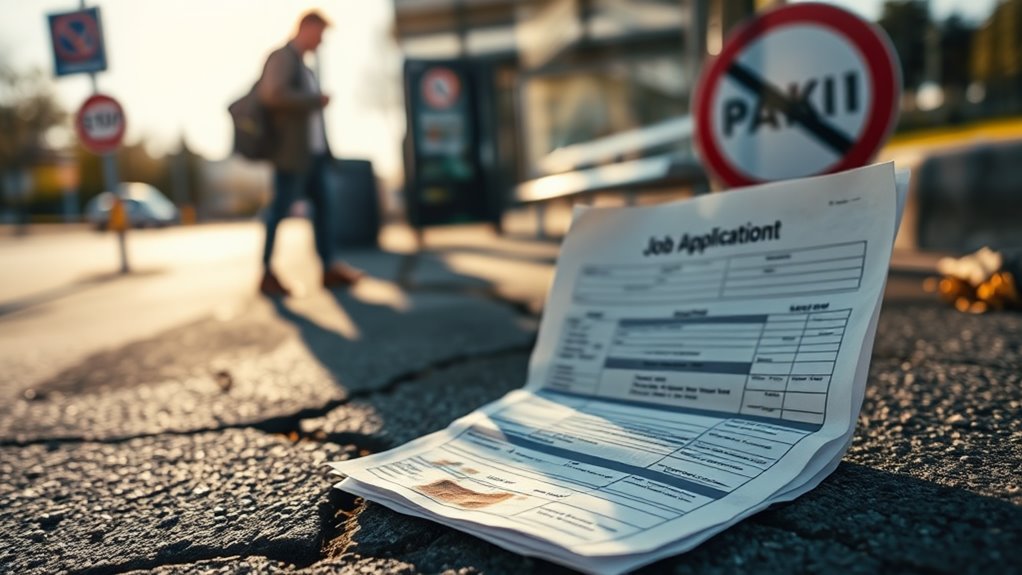7 Tips for Pain and Suffering Settlements
Did you know that over 50% of personal injury claims involve pain and suffering settlements? Steering through this process can be overwhelming, but understanding your rights and options is vital. With the right approach, you can maximize your compensation and guarantee your needs are met. So, how do you effectively advocate for yourself in these challenging situations? Let's explore seven essential tips that can guide you through the complexities of pain and suffering settlements.
Key Takeaways
- Document your pain consistently in a journal to provide a clear picture of its impact on your daily life and emotional well-being.
- Gather and organize all medical documentation, including treatment records, to substantiate your claims and demonstrate the extent of your injuries.
- Understand your Injury Severity Score (ISS) and how it affects your case, as it aids in evaluating your injuries' impact.
- Consult with an experienced attorney to navigate the complexities of pain and suffering settlements effectively.
- Carefully evaluate settlement offers, ensuring they adequately cover both current and future medical expenses as well as emotional impacts.
Understand the Severity of Your Injuries

When you're dealing with injuries, understanding their severity can make a significant difference in your recovery journey and potential settlement.
Utilizing tools like the Injury Severity Score (ISS) and the Abbreviated Injury Scale (AIS) can help you gauge how serious your injuries are. These scales classify injuries based on severity and anatomical focus, giving you and your medical team a clearer picture of your condition. Accurate assessments not only aid in your treatment but also strengthen your case for compensation. The Injury Severity Score provides a standardized method for assessing injuries, which is essential in legal contexts. Having a traffic lawyer on your side can also enhance your chances of obtaining a fair settlement. Detailed medical records documenting your injuries and recovery are essential.
Keep a Detailed Pain Journal
Keeping a detailed pain journal can be a game-changer in your recovery process. This journal serves as concrete evidence of the pain and challenges you face after your accident.
By consistently documenting your pain—its type, intensity, triggers, and effects on daily life—you create a powerful resource that supports your case. It enhances your credibility by demonstrating real suffering, which can be essential during settlement negotiations.
Make sure to include specific dates and activities that worsen or alleviate your pain. Your journal not only aids in recalling details for legal proceedings but also highlights the emotional impact of your injuries.
Gather Comprehensive Medical Documentation
Documenting your pain is only one part of building a strong case after an accident; gathering detailed medical documentation is equally essential.
Start by collecting emergency room records, physician notes, and diagnostic test results to establish the severity of your injuries. Don't forget prescription records and physical therapy reports, as these illustrate your treatment journey.
Make sure to request complete copies of all records and keep them organized chronologically for clarity. Regular updates from healthcare providers reflect your ongoing condition and recovery.
This thorough documentation not only proves causation but also supports your claims for non-economic damages, such as pain and suffering. A solid medical foundation can greatly impact your settlement outcome, so prioritize this essential step.
Seek Professional Legal Representation

While steering through the aftermath of an accident can feel overwhelming, securing professional legal representation can considerably ease the burden. A skilled attorney not only understands the legal process but also advocates effectively for you.
Here's how they can help:
- Maneuvering complex cases involving various injuries to maximize your compensation.
- Gathering essential evidence, including medical records and witness statements, to strengthen your claim.
- Developing tailored strategies that adapt to new evidence, ensuring your case is robust.
With experienced legal guidance, you'll have a better chance of securing a fair settlement for your pain and suffering.
Don't face this challenging path alone; enlist an attorney who'll fight for your rights and help you achieve the compensation you deserve.
Evaluate All Settlement Offers Carefully
After securing skilled legal representation, the next step is to evaluate all settlement offers carefully.
Don't rush into accepting the first offer, as it may not fully account for your pain and suffering. Assess the principal amount and guarantee it covers both your current and future medical costs.
Consider all damages, from economic losses like medical bills to non-economic losses such as emotional distress. Scrutinize the legal terms, including any confidentiality clauses that might restrict your future options.
Be Prepared for Negotiation
Being prepared for negotiation is essential, as it can greatly influence the outcome of your settlement.
Preparation for negotiation is crucial, significantly impacting your settlement's success.
To achieve the best results, focus on these key areas:
- Prepare essential documentation: Gather medical records, witness statements, and financial records to support your claims.
- Understand the strength of your case: Assess your injuries and research legal precedents to bolster your position.
- Develop effective negotiation strategies: Start with an ambitious demand and maintain professionalism during discussions.
Know When to Pursue Legal Action

Knowing when to pursue legal action can greatly impact your ability to secure a fair settlement for your pain and suffering. Early consultation with a lawyer helps you assess the strengths and weaknesses of your case. They'll guide you on whether it's advisable to take legal steps based on your specific situation.
Remember, statutes of limitations vary by state—failing to act within that timeframe can jeopardize your claim. If your injury is severe or liability is disputed, expect a longer case duration.
Document everything meticulously; it strengthens your position. If you're unsure, don't hesitate to seek legal advice—timing is vital in ensuring you receive the compensation you deserve. Your well-being matters, and legal action may be the best path forward.
Conclusion
Steering through pain and suffering settlements can feel overwhelming, but you don't have to do it alone. By documenting your experiences and seeking skilled legal help, you can transform your pain into a path toward justice. While the journey may be intimidating, remember that every step you take brings you closer to fair compensation. Don't let your suffering go unrecognized—empower yourself with knowledge and take control of your future. You deserve to be heard and compensated for your pain.



















